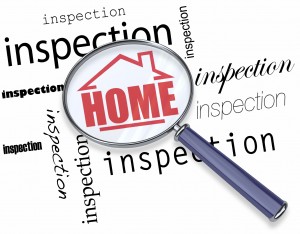Using a Home Inspection as a Negotiation Tool
 Home inspection is the most important thing that should be done before buying any house. It is not only a crucial element, as real estate agent will tell you, it offers disclosures that a real estate agent can’t provide. Real estate agents don’t want to get sued for not suggesting that a buyer obtain a home inspection.
Home inspection is the most important thing that should be done before buying any house. It is not only a crucial element, as real estate agent will tell you, it offers disclosures that a real estate agent can’t provide. Real estate agents don’t want to get sued for not suggesting that a buyer obtain a home inspection.
Home inspection bounds a seller to reveal the known defects of home. Most sellers are required to disclose to a homebuyer any material facts and things that might be wrong with the home, depending on various state laws. If a seller knows some hidden thing about the property then he must let the buyer know about that. For example, if there is tree in the home that tree roots often creep into the sewer line and need to be removed from time to time, the seller must share this information to the buyers. It could mean the sewer line should be replaced, and the buyer might want to obtain a deep inspection.
Sometimes sellers don’t want to share the information because they don’t want to pay for repairs. They want to avoid the request to deal with repairs. They know if the buyer knows about the problems with home he will be asking seller to fix them and in this way seller will have to make some repair expenses. If there is a serious defect in the property the buyer may not be buying the home and may cancel the deal. They don’t stop to think that if the buyer finds out about it after the home closes, the buyer might sue the seller for purposely withholding pertinent information.
Sometimes the sellers not only want to sue the seller in this situation, but also want to sue everybody that is involved in this transaction, including all the involved real estate agents and their brokers. A real estate agent assumes and expects that home inspection will disclose such hidden things that the sellers have not shared with them, whether on purpose or not. After home inspection, at least homebuyers know the exact situation and are in a better to make the informed decision.
Is The Seller Required to Make Repairs for Defects Noted in the Home Inspection?
Buying a home may be the biggest financial investment decision you make and it may be the largest investment you make in your life. Buying home is not just like buying a car from the market or picking up a dress from some shopping mall. So, you need to be super careful when buying a home. Especially if you are the first time homebuyer then you need to take every single element into consideration.
It may be strange, but a brand new home that has never been occupied may reveal defects. In California, for example, builders guarantee the workmanship of a new home for ten years. Builders want to deliver the home in excellent condition to the buyer and will fix most problems. Repairs are not required with a resale home, a home that has been previously occupied.
Why Would Sellers Make Repairs After a Home Inspection?
Some home sellers may try to be proactive and order home inspection before listing the home for sale. While this preemptive disclosure might be potentially useful, it can also backfire.
- Two home inspections may not be the same.
- May be the defects on the pre-home inspection wrongly noted.
- The buyer will still obtain his or her own home inspection anyway.
- The seller might make repairs pursuant to the seller’s home inspection that the buyer would not request.
- The seller might be required to hand over an inaccurate home inspection to the buyer.
The main reason that the sellers make repairs on the buyer’s behalf is because if the buyer cancels the deal, they are supposed to provide the home inspection copy to the next buyer by law. Based on this inspection the new homebuyer may demand more repairs and offer less price.
In this case it is better to deal with the buyer at hand. Fewer owners want to take the ownership of such home that is suddenly back on the market because it brings a bunch of question that why the home is back on market. The homebuyers in the market think that there was something serious with the home so the first buyer has returned the home and cancelled the deal. Not only does the seller have to struggle with this issue, but the seller also has to deal with a new buyer’s quirks.
If the second buyer comes to know that why the first buyer has cancelled, he will be more frightened to move forward. Buyers don’t want to make what they believe would be a stupid mistake. They worry that they might be missing some crucial element because they tend to know about as much about a home inspection as the first buyer, which is often very little.
